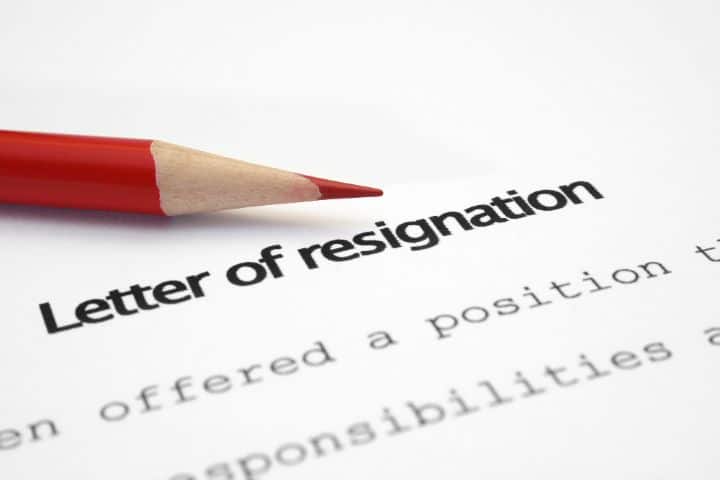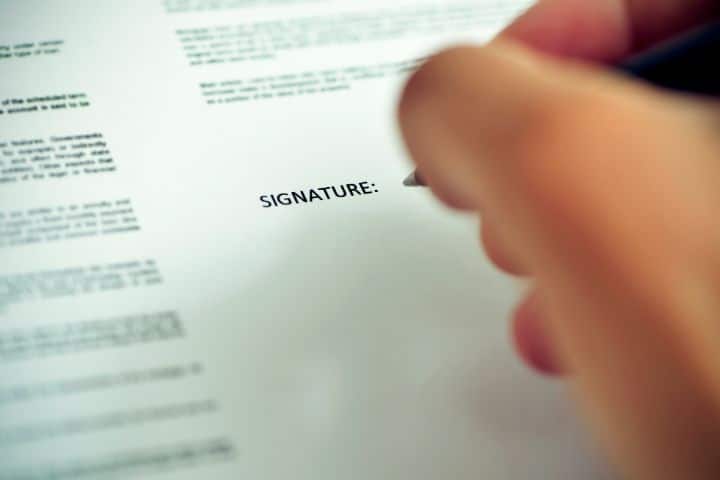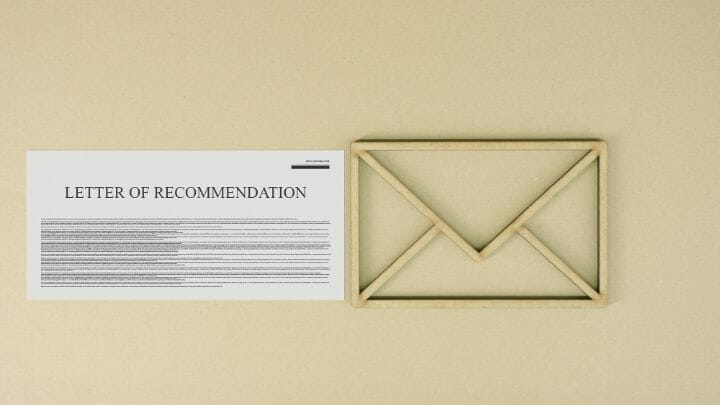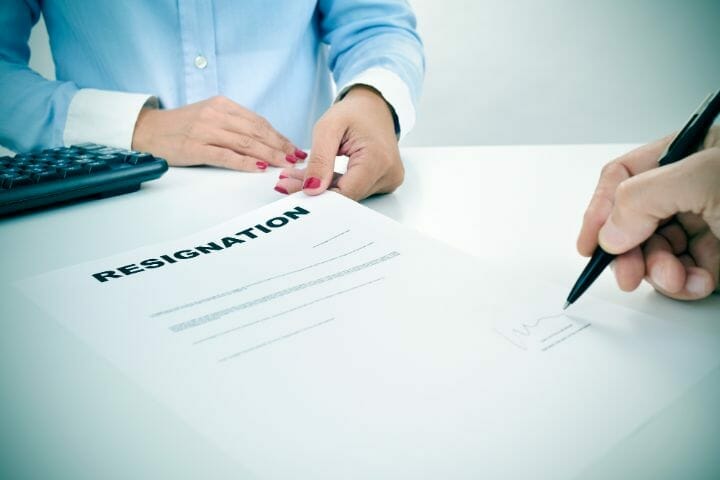So, you’ve decided that you’re going to quit your job and now you need to draft a resignation letter to let your boss (and presumably human resources) know that you’re going to be leaving.
This is where many people get stuck. They know they are quitting, and likely they know when they’ll be leaving but they don’t know exactly what the letter should (or shouldn’t) say to make sure it’s clear and professional.
There are certain items you will need to include in your resignation letter, but the rest can be changed depending on what you feel you need to include.
There are a few things you shouldn’t include, which will be mentioned here too, but you can definitely choose what works best for you and the position you’re leaving.
Contents
The Logistics of Your Resignation Letter
There are a few formatting details you may want to review to make sure your resignation letter is appropriate and professional-looking.
Length
Typically, every resignation letter is about one page in length. This keeps the letter to the point and on track, without derailing into details you might not need to include.
Font type and size
When you’re typing up this letter, choose a font that is professional and not frilly. A traditional font like Times New Roman in a font size of 12 will give a very professional look to your letter.
Formatting
Your letter should use 1” margins, which are pretty standard, and it should be single-spaced. Make sure the text of your letter is left justified.
Signature
You will likely need to officially sign the letter to make it official. If you are sending an email, this will be a little more difficult of course. You will need to somehow make it official that this letter is coming from you.
You may also like How Long Will a Million Dollars Last In Retirement
What You Need to Include in Your Letter
Here are the items you need to make sure your letter includes when you hand it in.
Effective date
This is a very important detail that you need to make very clear in your letter. You will need to indicate which day will be the last date you will be working for the company.
Date of letter
You will need to put the date you’re writing the letter on the top of the letter. This can act as the proper notice you need to provide your company with, depending on any contractual obligations you might have.
Properly addressed
You will need to make sure the letter is addressed to your boss, HR, or both. If you address it something along the lines of “To whom it may concern”, it can be impersonal.
If you’re leaving a job you don’t have a lot of ties to or didn’t really settle into, this might not be a big deal. However, if you’ve worked at that company for many years and have relationships built up with your colleagues then you may not want to leave on those terms.
Your contact information
This part of the letter should be in the header of the letter. It should include your name, title, company name, address of the company, phone number and email).
If you are emailing this letter instead of sending a physical letter, these details should be included at the end in your email signature instead of as a header.
You may also like Your Post-Retirement Options
Optional Details for Your Resignation Letter
Now that you know the details your letter should definitely include, there are additional details you can add in depending on your comfort level and relationship with your boss and colleagues.
Reason for leaving
If you are leaving because of a move across the country or your spouse’s job requires you to leave, these may be details you are comfortable sharing. If you are leaving because of another job or simply don’t want to work there anymore, you might decide to leave these details out.
Your employer cannot ask you why you are leaving, and it’s completely up to you so if you don’t want to tell them you don’t have to.
Offer to help with the transition
Depending on your reason for leaving, you may have some flexibility on the cutover date for the person taking over your role. In your letter, you can let your boss know that you are willing to stay on and help with the transition for whoever they get to fill your position.
If you do offer this, don’t be surprised if they don’t take you up on it. Many companies will wait until the employee has left to even start looking for a replacement, so this might not be needed even if you offer it.
A sincere thank you
If you have a good relationship with your boss, it would be appropriate to add in a thank you for the opportunities for growth and the experience in working with them. You can add in any specific details about your job, and what made the experience so great if you want to.
Asking for a reference
If you believe you will be looking for another job in the future, you may choose to ask your boss for a reference or letter of recommendation. If you don’t have a good relationship with your boss, or don’t feel comfortable with future employers reaching out then you can skip this part.
Additionally, you can ask individual colleagues for references if you want to. This should be done outside of the letter of recommendation, especially if you don’t have a good relationship with all of them.
You may also like Best Jobs for Quadriplegics
What You Should Not Include in Your Resignation Letter
It may be tempting to say certain things in your resignation letter since you won’t be working for the company anymore, but this letter may not be the right time or place to do so. There are a few details you should leave out of the letter, even if you really want to include them.
Do not leave immediately
If you have a particularly bad experience with your employer or it’s a bad environment, it may be tempting to just quit right away. Unless you absolutely need to, it’s advisable to not quit right away in your letter and give some notice.
Do not write negative comments
Even if you really want to put in writing all of the horrible things your boss or colleagues do, do not put them in writing at all. Doing so could have unintended consequences, so it’s best to just keep them out of this letter and not put anything in writing.
Do not defame the company
When you’re leaving a company because of a difference in opinion or view, it may be easy to say negative things about the company when you leave but try not to. This is similar to the idea of not putting anything in writing about your boss, so best to just keep your comments quiet when you’re writing the letter.
Do not mention salary
If the reason you are leaving is due to salary, or another company is willing to pay you more, don’t mention it in the letter. It seems very unprofessional in this case, and it’s not something that will leave a good lasting impression. This letter will likely set the tone for how you’re remembered, and you want to make sure your company has a good perspective of you.
Do not criticize any subordinates or colleagues
You may not really like your colleagues, or employees or report into you but this is not the space to criticize them or say anything negative about them.
While you may believe it’s serving the purpose of letting your boss know the truth about what goes on, the truth is that it reflects very negatively on your character instead of shining a light on anything mishaps around the office.
Do not tell them about any legal actions
If you are intending to take any legal action against your employer (for any reason) do not tell them this in the letter. That is a separate matter that has no place in the resignation letter. The details of that should be handled by your lawyer so that you do not put into writing anything you shouldn’t.
Do not be overly positive
If you are overly positive about your experience with your employment, then it may come across as insincere. It’s important to be positive in your letter, and not leave a negative feeling to the letter, but it’s also important to be sincere and honest.
You may also like Best Jobs for Wheelchair Users
Wrap Up
Make sure all of the letters are true and factual while sticking to the important details and leaving out what is not relevant to your employment with the company.
When you’re done writing your letter of resignation, you should always have someone read over it. This doesn’t have to be a colleague if you are not telling anyone you’re leaving, but you should have someone look it over to make sure it sounds professional and direct.
Leaving a company is never an easy decision, but when you finally decide to do it you want to make sure your letter is right as it will be the last image your company has of you.





